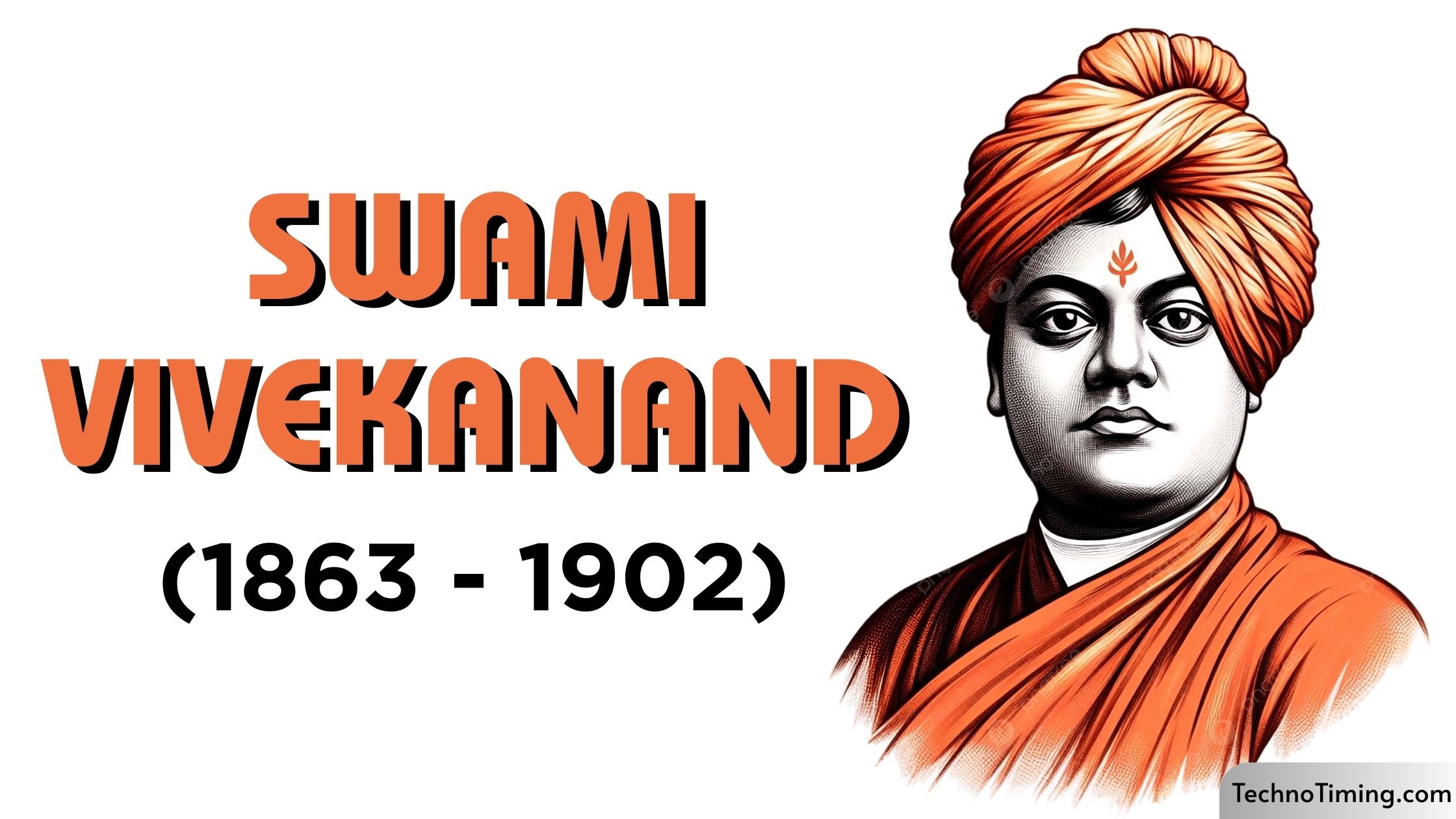Swami Vivekananda: A Biography of the Visionary Monk Who Awakened a Nation
Swami Vivekananda, a name that resonates with spiritual dynamism and intellectual fervour, remains one of the most influential figures in modern Indian history. His powerful message of strength, self-belief, and service to humanity continues to inspire millions across the globe. This article delves into the complete life story of this revolutionary monk, exploring the movements and programs that became the vehicle for his transformative vision.
Early Life and Spiritual Awakening
Born Narendranath Datta on January 12, 1863, in Calcutta into an affluent Bengali family, Vivekananda displayed a sharp intellect and a rebellious spirit from a young age. His father, Vishwanath Datta, was a successful attorney, and his mother, Bhuvaneshwari Devi, was a woman of deep faith who had a profound impact on her son. As a student, Narendranath excelled in a wide range of subjects, from Western philosophy and history to music and gymnastics. However, a deep spiritual quest led him to question the existence of God.
In November 1881, a meeting with the mystic Saint Sri Ramakrishna Paramahamsa at the Dakshineswar Kali Temple proved to be a pivotal moment in his life. Initially skeptical, Narendranath was drawn to Ramakrishna’s profound spiritual realization and his simple, yet deeply insightful, teachings. When Narendranath famously asked, “Sir, have you seen God?”, Ramakrishna‘s direct reply, “Yes, I have seen Him just as I see you here, only more intensely,” left a lasting impression. Under Ramakrishna’s guidance, Narendranath’s spiritual journey blossomed, and he became his guru’s most ardent disciple.
The Wandering Monk and the Soul of India
Following the passing of Sri Ramakrishna in 1886, Narendranath, along with other disciples, took monastic vows and became Swami Vivekananda. In 1888, he embarked on a five-year journey across the length and breadth of India as a Parivrajaka, a wandering monk. This extensive travel brought him face-to-face with the stark realities of the country: the crushing poverty, the social stagnation, and the loss of self-esteem among the masses. These experiences ignited within him a powerful resolve to dedicate his life to the upliftment of the nation.
A Roaring Voice at the World’s Parliament of Religions
In 1893, with the support of his followers, Swami Vivekananda journeyed to the United States to represent Hinduism at the Parliament of the World’s Religions in Chicago. His opening address on September 11, which began with the heartfelt words, “Sisters and Brothers of America,” was met with a thunderous standing ovation and catapulted him to international fame. In his speeches, he eloquently presented the core principles of Vedanta, emphasizing the divinity of the soul, the harmony of religions, and the universal message of tolerance and acceptance. He famously declared, “I am proud to belong to a religion which has taught the world both tolerance and universal acceptance. We believe not only in universal toleration, but we accept all religions as true.”
Practical Vedanta and the Ramakrishna Mission
Upon his return to India in 1897, Swami Vivekananda was greeted as a national hero. He then channeled his energies into giving an organizational framework to his vision. On May 1, 1897, he founded the Ramakrishna Mission. The mission’s motto, “Atmano Mokshartham Jagad Hitaya Cha” – “For one’s own salvation and for the welfare of the world” – encapsulates its core philosophy.
At the heart of the Ramakrishna Mission’s work is Vivekananda’s philosophy of Practical Vedanta. He believed that the profound spiritual truths of Vedanta should not be confined to caves and forests but applied to solve the everyday problems of life. He urged people to see God in every human being and to serve the poor, the sick, and the ignorant as a form of worship. This philosophy synthesized the spiritual with the social, creating a path for active, selfless service.
The Ramakrishna Mission, along with its twin organization, the Ramakrishna Math (a monastic order), became the primary instruments for this vision. The organizations have since established numerous hospitals, schools, colleges, rural development centers, and have conducted extensive relief and rehabilitation work during natural calamities.
Movements for Social Reform: Education and Upliftment
Swami Vivekananda was a staunch social reformer who vehemently spoke out against the evils plaguing Indian society. He condemned the tyranny of the caste system and untouchability and advocated for universal education as the panacea for many of India’s problems.
Education for All: Vivekananda believed that education was the key to unlocking the potential of the masses. He advocated for an education that was not merely about stuffing the mind with information, but about “life-building, man-making, character-making assimilation of ideas.” He also stressed the importance of technical and industrial training to make individuals self-reliant.
Empowerment of Women: Swami Vivekananda was a passionate champion of women’s rights. He believed that the progress of a nation was impossible without the upliftment of its women, famously stating that a country cannot advance if it flies on only one wing. He advocated for women’s education and believed they should be empowered to solve their own problems. Vivekananda envisioned a future where Indian women would be strong, educated, and fearless, drawing inspiration from both their rich heritage and modern ideals.
Final Years and Lasting Legacy
The relentless work and constant travels took a toll on Swami Vivekananda’s health. He passed away on July 4, 1902, at the age of 39 at Belur Math, which he had established as the headquarters of the Ramakrishna Order. Though his life was short, his impact has been profound and enduring.
Swami Vivekananda’s teachings continue to be a source of inspiration for a modern India, reminding its people of their glorious spiritual heritage while urging them to embrace progress and social equality. His call to “Arise, awake, and stop not till the goal is reached” remains a powerful mantra for self-improvement and national regeneration. He was not just a spiritual leader but a patriot, a thinker, and a reformer who laid the foundation for a renewed and self-confident India.
Fuel Your Hustle: Swami Vivekananda’s Timeless Wisdom for Today’s Startups
Embarking on a startup journey is an exhilarating, yet often daunting, endeavor. It demands unwavering belief, relentless hard work, and the audacity to chase a vision against all odds. In the timeless teachings of Swami Vivekananda, a visionary monk and philosopher, entrepreneurs can find a deep well of inspiration to navigate the turbulent waters of the startup world.
Here are powerful quotes from Swami Vivekananda, curated to ignite the fire within every aspiring founder:
On Vision and Taking the Plunge
Every startup begins with a single, powerful idea. Vivekananda’s words encourage founders to embrace their vision with unwavering focus and the courage to bring it to life.
- “Take up one idea. Make that one idea your life – think of it, dream of it, live on that idea. Let the brain, muscles, nerves, every part of your body, be full of that idea, and just leave every other idea alone. This is the way to success.” This quote encapsulates the obsessive focus required to turn a startup concept into a reality.
- “Dare to be free, dare to go as far as your thought leads, and dare to carry that out in your life.” For any entrepreneur, this is a call to action to not only dream big but to have the audacity to execute on that dream.
- “The earth is enjoyed by heroes. Be a hero. Always say, I have no fear.” Fear is a natural part of the startup journey, but this quote serves as a powerful reminder to face challenges with courage.
On Self-Belief and Inner Strength
The path of an entrepreneur is often lonely, and self-doubt can be a formidable enemy. Vivekananda’s teachings emphasize the immense power that lies within each individual.
- “All power is within you; you can do anything and everything. Believe in that, do not believe that you are weak.” This is a potent antidote to imposter syndrome, reminding founders of their inherent capabilities.
- “You cannot believe in God until you believe in yourself.” This quote powerfully links faith in a higher power to faith in one’s own potential, a crucial mindset for any leader.
- “The greatest sin is to think yourself weak.” In the competitive startup landscape, a mindset of strength is not just an advantage, it’s a necessity.
On Perseverance and Overcoming Challenges
Startups are a marathon, not a sprint. There will be obstacles, setbacks, and moments of despair. Vivekananda’s wisdom provides the fortitude to keep going.
- “Arise, awake, and stop not till the goal is reached.“ This iconic quote is a rallying cry for relentless perseverance, urging entrepreneurs to stay the course no matter what.
- “Each work has to pass through these stages — ridicule, opposition, and then acceptance. Those who think ahead of their time are sure to be misunderstood.” This is a comforting thought for innovators who are introducing disruptive ideas to the market.
- “Great work requires great and persistent effort for a long time. … Character has to be established through a thousand stumbles.” This quote normalizes the struggles and failures that are an inevitable part of building something truly great.
- “On a day when you don’t come across any problems, you can be sure that you are travelling the wrong path.” This reframes challenges as a sign of progress, encouraging founders to embrace and learn from them.
On Action and Taking Responsibility
A vision without execution is merely a dream. Vivekananda’s words are a powerful call to action and accountability.
- “Stand up, be bold, be strong. Take the whole responsibility on your own shoulders, and know that you are the creator of your own destiny.” This is a direct message to founders to own their journey, their decisions, and their outcomes.
- “Do not wait for anybody or anything. Do whatever you can, build your hope on none.” This quote champions a proactive, self-reliant approach, which is essential in the fast-paced startup environment.
In the wisdom of Swami Vivekananda, today’s entrepreneurs can find not just motivation, but a practical guide to cultivating the mindset needed for success. His teachings on self-belief, perseverance, and fearless action are as relevant in the boardroom and the co-working space as they were on the stages he addressed over a century ago.


